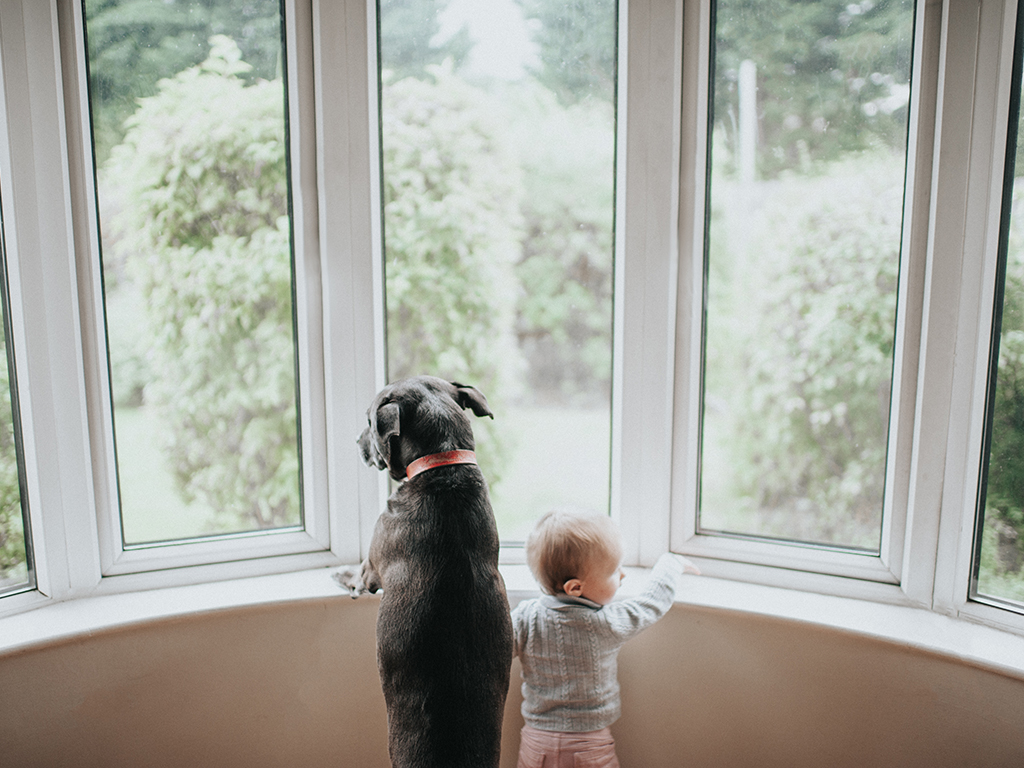
Readers, the things I have seen in bougie corners of suburban London: dogs in clothes, dogs in papooses, dogs in prams. The promotion video for one “sporty dog stroller”, priced at £349.95, shows a woman pushing her West Highland terrier uphill along a hiking trail. “Dog pram comfort strollers are designed for pet parents’ convenience and your pooches’ ultimate comfort,” I learn from one retailer. I have seen these “pooches” in local coffee shops – they seem confused to find themselves on such expensive thrones.
I don’t know when exactly vets started referring to us as “pet parents”. Our large mongrel does not look at all like a baby, and yet I am apparently his “mum”. A friend of a friend who has four human children once took the family’s lizard to a pet shop to have its claws trimmed, and when the grooming session was over, the staff announced over a loudspeaker that “lizard mum” needed to come and collect her scaly son.
[See also: Don’t blame Instagram for the popularity of plastic surgery; blame those who profit]
The science behind “pet parenting” is fascinating. We have had a symbiotic relationship with dogs for tens of thousands of years, utilising their talents for guarding, sniffing and herding in return for food. There is also evidence of a long history of emotional intimacy between dogs and their owners in the form of a 14,000-year-old grave containing a couple and a young dog, who had been carefully nursed through illness in puppyhood. Dogs were originally intended to be useful, but they’ve often been loved, too.
The great majority of dogs in modern Britain don’t perform any function except loving and being loved. Our dog’s only useful service is licking up food dropped on the floor and (he thinks) protecting the house from burglars. When tameness is selected for in a species over time – whether by humans or by natural selection – domestication syndrome is the eventual result. The genes affected are linked to the central nervous system, and what’s interesting is that the condition brings with it a range of seemingly irrelevant traits. Domesticated animals are not only gentler and more playful than their wild counterparts, but they’re also more likely to have floppy ears, white patches in their fur and a shorter muzzle – all side effects of tinkering with the central nervous system to make them more docile.
[See also: What my toddler and I learned at Drag Queen Story Hour]
Consider the cockapoo, one of the UK’s most popular hybrid dog breeds, and a perfect example of domestication syndrome in action. Their neotenous features remind us of babies: big eyes, round faces and disproportionately large heads. Cockapoos are little Peter Pans, permanently round and squishy like puppies. In other trendy breeds, such as pugs, these traits have been taken to dangerous extremes, as their eyeballs are now so large that they are incapable of properly blinking. These poor dogs are paying the price of human desire for what the Japanese call kawaii – cute, lovable babyishness.
It’s no surprise that the London suburbs in which delayed childbearing is the norm are also places with a high concentrations of dog prams. I can personally attest that the babying of dogs by their broody owners is usually subconscious. It was only after we had a real baby that I realised how much we’d been treating our dog like a big, hairy child.
[See also: In the sleek, luxurious world of athleisure, aspiration hides something much darker]
We didn’t let him on to the furniture and we certainly didn’t try to heave his 35kg bulk into a dog pram, but in many other ways he filled the space in our lives that a baby would have filled. After our son was born, I went through a period of feeling guilty and confused, wondering why my feelings towards the dog had so suddenly changed. I think now that the change was for the better, because dogs don’t want to be our fake babies. The cockapoo’s ancestors were bred as hunting dogs, tasked with retrieving wildfowl and watercock – a history that can be glimpsed in their eagerness to retrieve soggy tennis balls. All in all, dogs are much happier being dogs; perhaps we humans would also be happier if we let them.
Tracey Thorn is on sabbatical
This article appears in the 31 Aug 2022 issue of the New Statesman, The Liz Truss Doctrine






